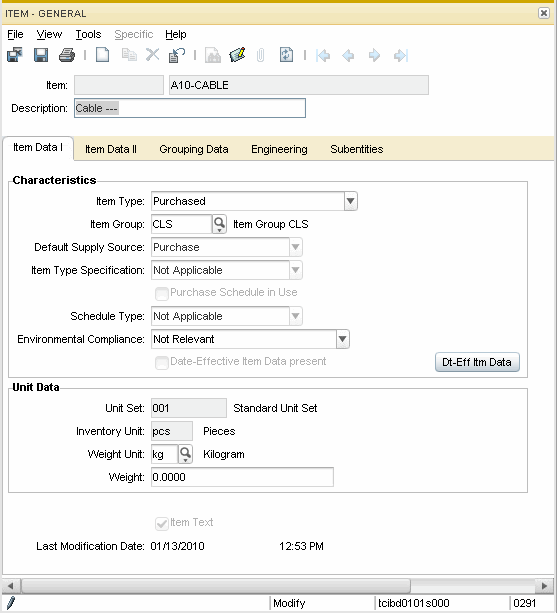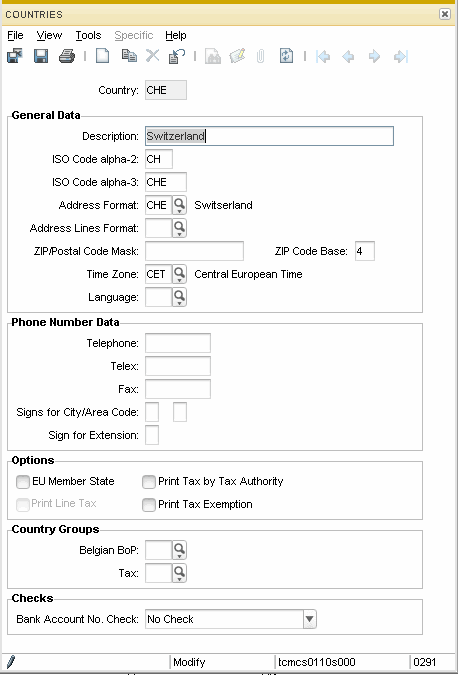FormsThe form is the user interface part of the session. Forms, which are presented to users, include data and actions that users can perform on that data. The session and form are integrated; one form per session is defined. The form definition in the session identifies the fields, labels, and options that are available in the session's overview display window and details window. Ejemplo Field groups allow certain fields to be displayed together
within a box, or within a tab. The Item – General session
contains more than one tab.  Item - General Ejemplo Some sessions can fit all their fields on one tab, like the Countries detail session.  Countries A Form provides the rules for the user dialog, or panel, that is displayed. You create and edit sessions and forms using the Sesiones (ttadv2500m000) session. This session acts as a Developer’s workbench as it provides access to all the major components of a session. To create forms To create and edit forms, you must use the Editor de formularios dinámicos de Infor LN that is part of Herramientas de desarrollo. This is a PC based application that should be installed for each developer. The Editor de formularios dinámicos de Infor LN also provides access to the major components of the session. The form editor allows you to specify the available session types for the form (overview and detail), the field groups, labels and fields that are used to create the form. The form that is presented to the user is created dynamically:
For details, refer to For more information, refer to the following topics in the Ayuda web de Infor:
| |||